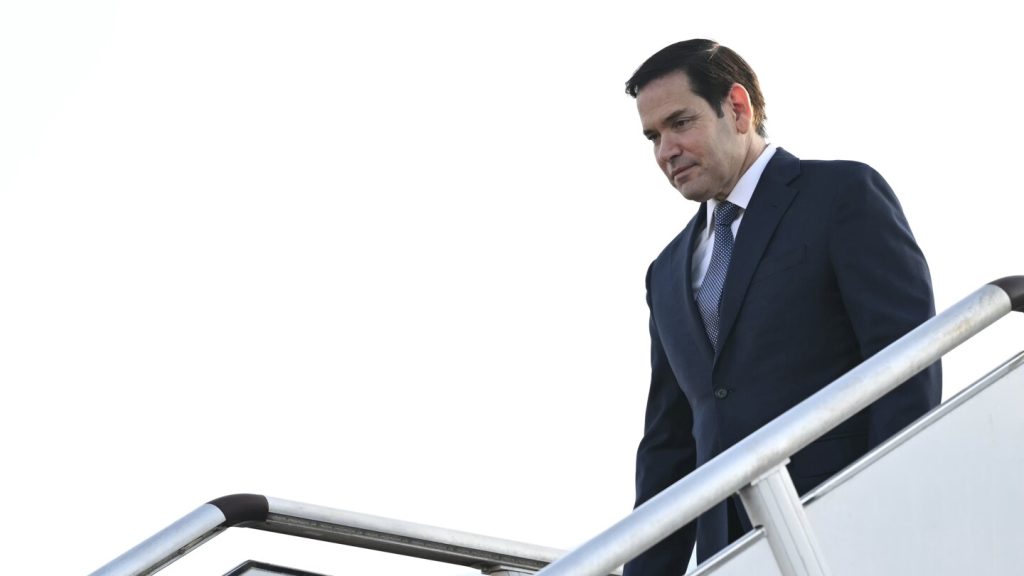KUALA LUMPUR, Malaysia (AP) — U.S. Secretary of State Marco Rubio is set to meet with Russian Foreign Minister Sergey Lavrov on Thursday in Malaysia. This meeting occurs amidst escalating tensions due to Russia’s intensifying attacks on Ukraine and doubts about President Putin’s commitment to a peace agreement.
Both officials will convene in Kuala Lumpur during the annual Association of Southeast Asian Nations (ASEAN) Regional Forum, which gathers all ten ASEAN members along with key diplomatic partners like Russia, China, Japan, South Korea, European nations, and the U.S.
This meeting takes place shortly after the U.S. resumed some defensive weapon shipments to Ukraine, following a hiatus that was welcomed by Moscow while the Pentagon reassessed its munitions stock.
As Russia escalates its air strikes on Ukraine, President Donald Trump has expressed growing frustration with Putin. “Putin is not treating human beings right,” Trump remarked during a Cabinet meeting, emphasizing the need to support Ukraine with defensive aid.
A U.S. Diplomatic Effort Amidst Tariff Threats
In addition to his meeting with Lavrov, Rubio will engage with other foreign ministers, many of whom are facing impending tariffs set to be implemented on August 1. These tariff threats could overshadow Rubio’s inaugural official trip to Asia, where strengthening ties with Indo-Pacific nations is vital in countering China’s rising influence.
While addressing ASEAN foreign ministers, Rubio sought to reassure them of the U.S.’s commitment to the Indo-Pacific region. “The Indo-Pacific remains a focal point of U.S. foreign policy,” he stated, underscoring his intent to continue building relations irrespective of external influences.
Upcoming Tariff Increases Affecting ASEAN Nations
Rubio faces challenges related to tariffs affecting nearly all ASEAN countries, with proposed increases that may significantly impact their electronics and electrical exports to the U.S. Despite Malaysia’s readiness to resume tariff negotiations, Trade Minister Zafrul Aziz affirmed that the nation would not compromise on key issues, including government procurement and medical standards.
Recent announcements have led to significant tariff hikes across ASEAN nations, impacting countries like Brunei, the Philippines, and Malaysia directly. While the Trump administration aims to reinforce partnerships in Southeast Asia to mitigate China’s influence, these ongoing tariff discussions complicate the diplomatic landscape.
Rubio’s interactions may also include discussions with Chinese Foreign Minister Wang Yi, who is well-versed in ASEAN protocols. The ongoing issues surrounding trade, human rights, and regional stability continue to challenge U.S.-China relations. Additionally, U.S. officials suspect China of assisting Russia’s military capabilities amid the conflict in Ukraine.
Earlier on Thursday, Rubio signed a memorandum with Malaysia regarding civilian nuclear energy, paving the way for further negotiations under U.S. law, which facilitates collaboration in nuclear energy initiatives while maintaining strict oversight.



